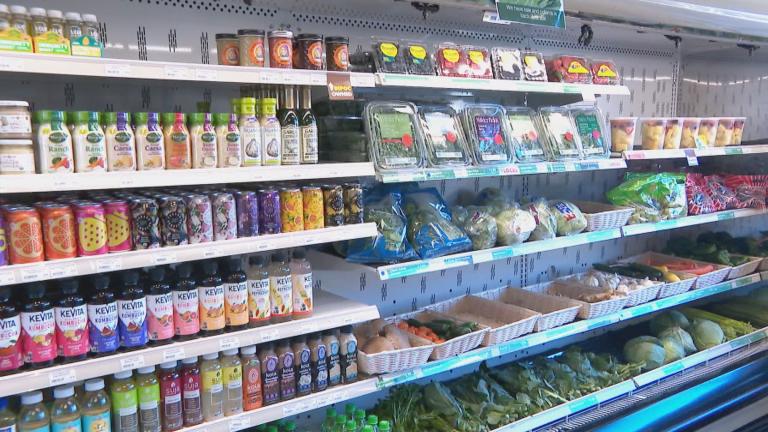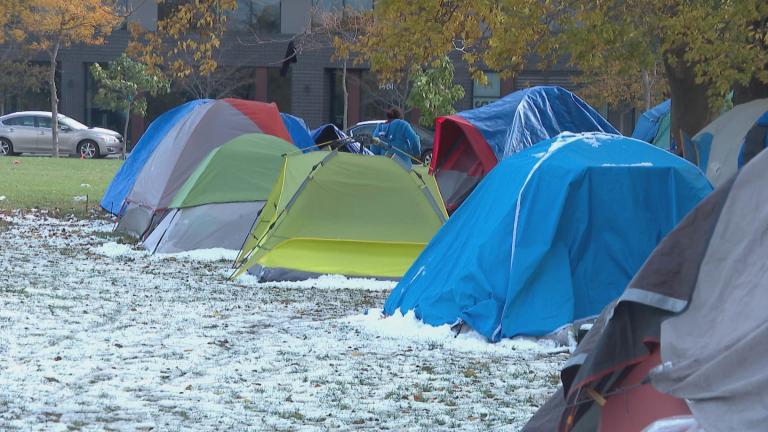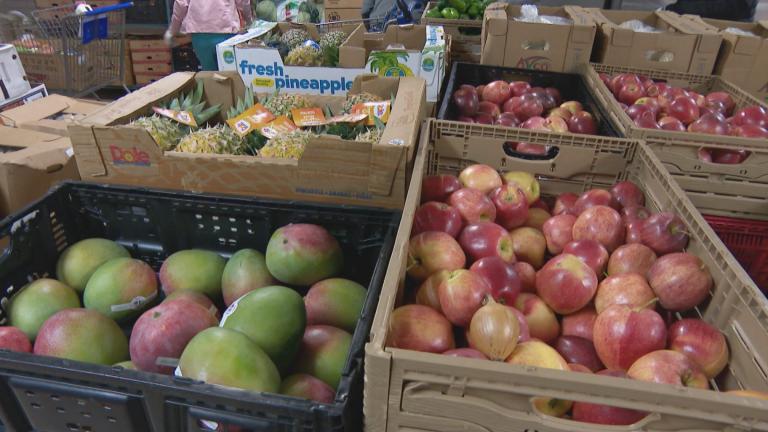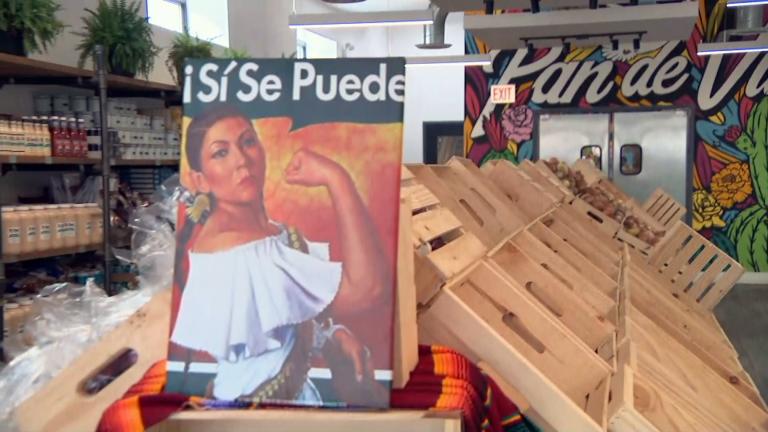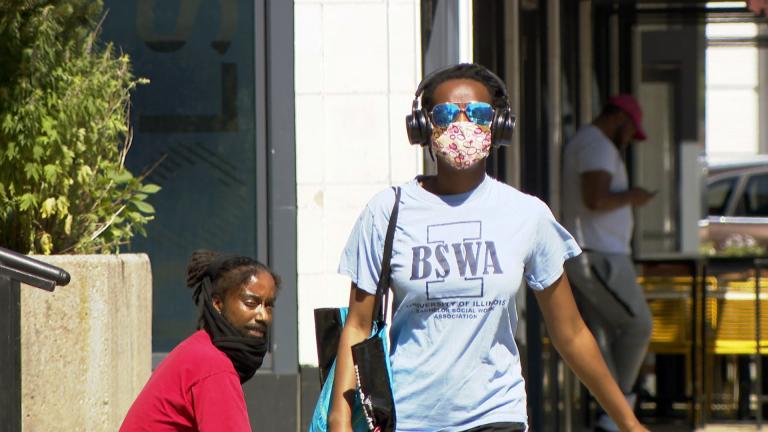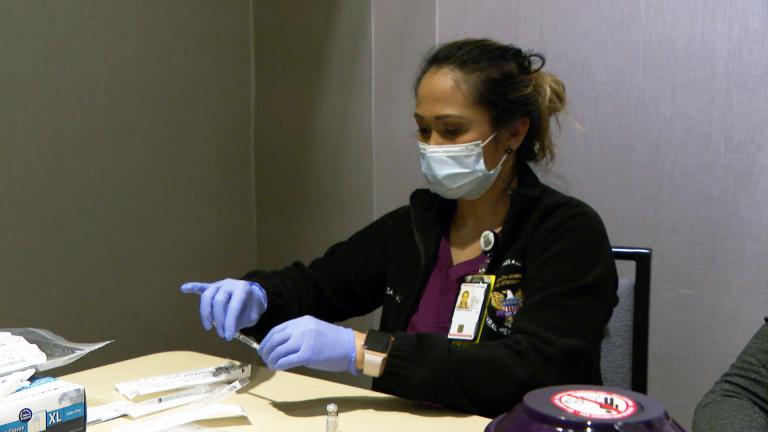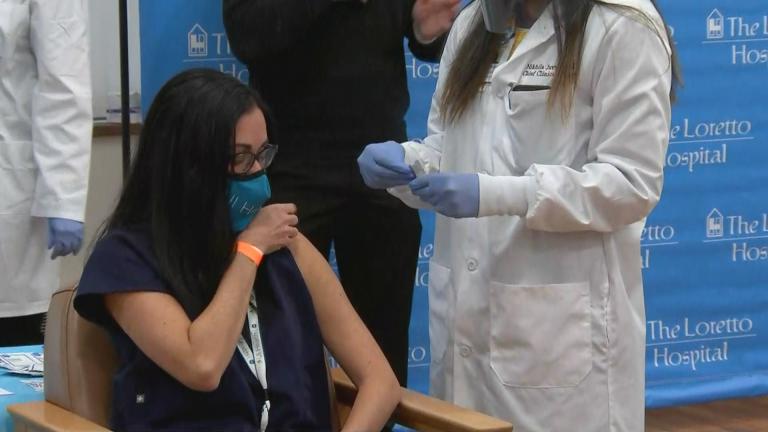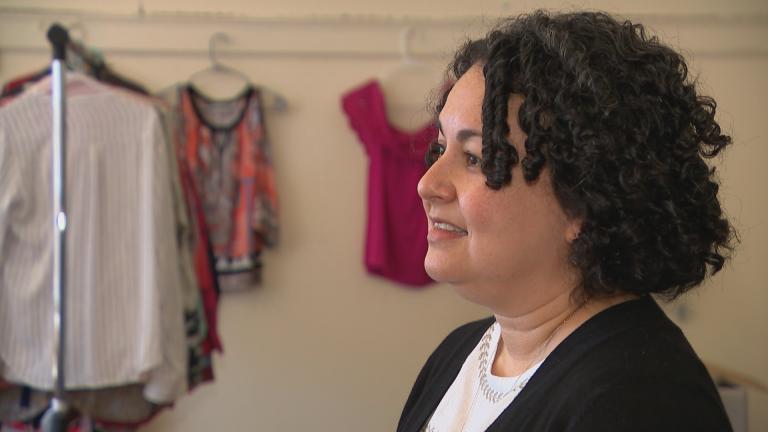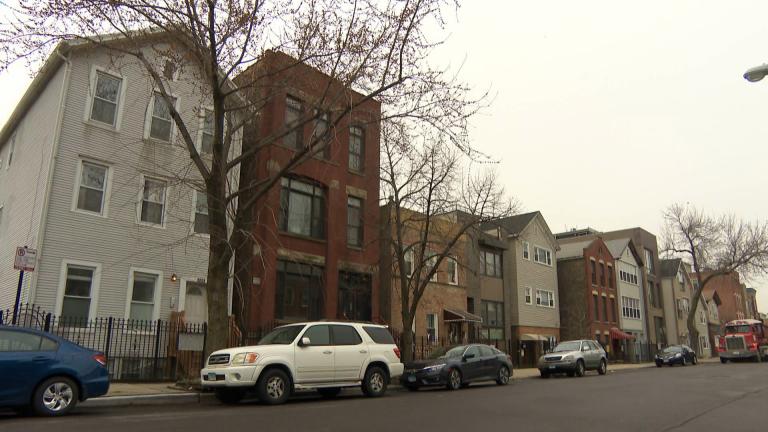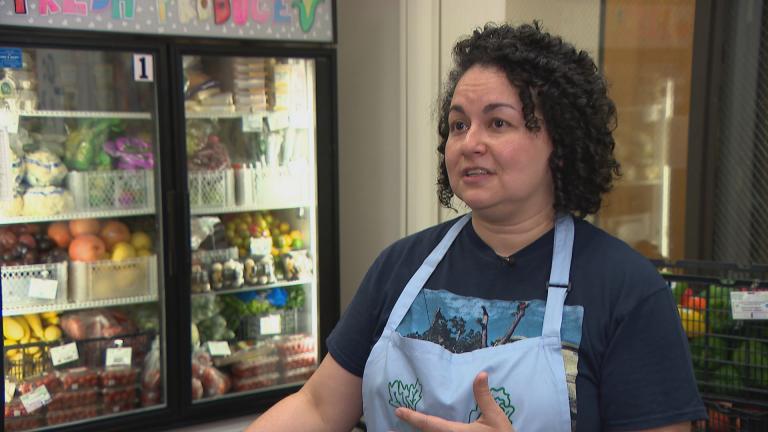A city report found 29% of Latinos in Chicago are experiencing food insecurity. Not only do families struggle to access enough food, but finding nutritious foods to stay healthy can also be more difficult.
Evelyn Figueroa
Chicago’s temperatures are dropping. This brings a new set of challenges for the more than 2,800 migrants living at police stations — most of whom have never experienced a Chicago winter.
Households in Illinois receiving SNAP food benefits will see them decrease in March as a pandemic-era policy giving families additional benefits comes to an end. The average person will receive about $90 less in SNAP benefits per month.
As anyone who’s gone grocery shopping recently knows, food prices are on the rise. In Chicago, 28% of Latino families with kids are facing food insecurity according to a study done in 2020. And, families that rely on schools to provide meals for their children are feeling an extra pinch with kids at home during the summer break.
This week seems to have marked a turning point in the COVID-19 pandemic with the lifting of masking mandates and vaccine checks in Chicago. But as spring approaches, it’s also a reminder that we’ve been here before.
While COVID-19 cases and hospitalizations have dropped nationally, a local infectious disease expert says the situation is a little more complex than whether or not the nation is reaching herd immunity.
Despite the FDA’s full approval of the Pfizer COVID-19 vaccine, some people are still hesitant to roll up their sleeves. A local medical professional talks about the reasoning behind some of this reluctancy and how it’s being addressed.
A look back on the impact of the pandemic on the Latino community after one year, with doctors Marina del Rios, Juanita Mora and Evelyn Figueroa.
Why our motivations for helping those in need matter just as much as how we help them.
The coronavirus pandemic has altered daily life in every way, from increasing financial worries and food insecurity to simply upending routines. How can people adjust to a new normal in the face of all these new worries?
Food insecurity is a nationwide problem, but studies show it’s even more acute in Chicago. How one food pantry is trying to tackle the problem.

